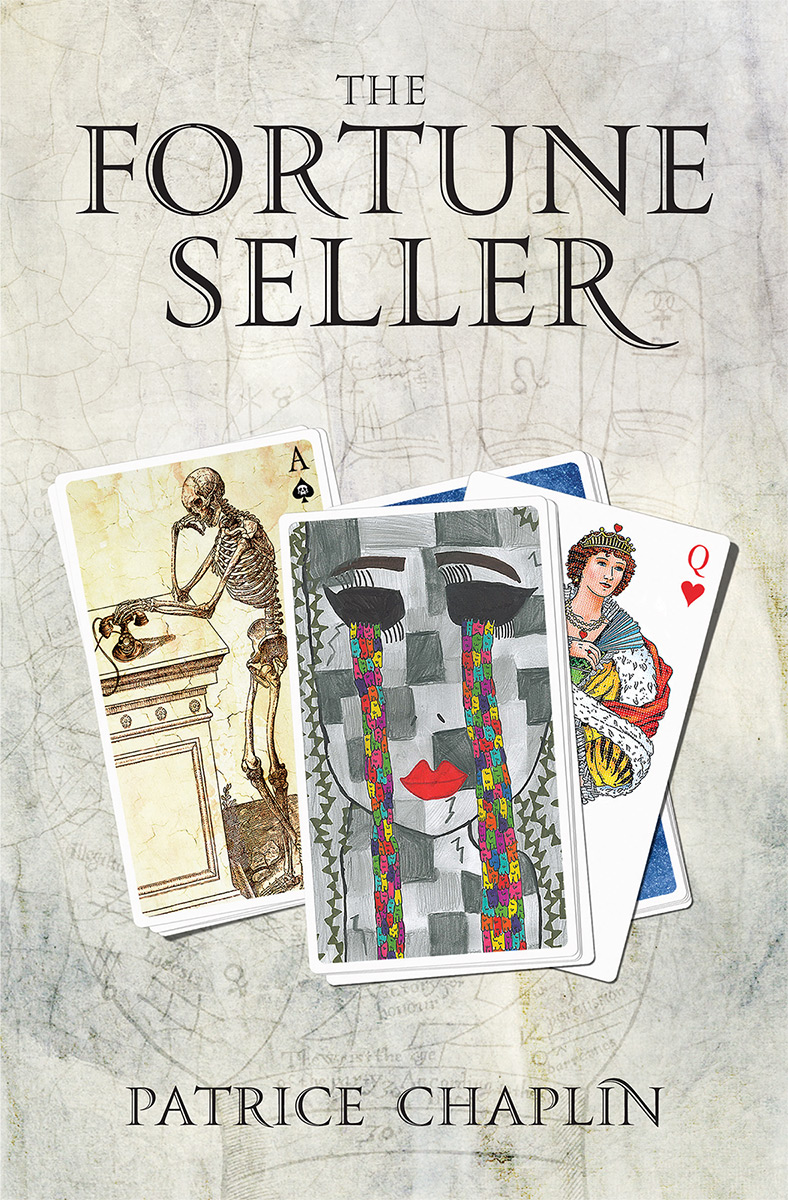The Fortune Seller
Jesse, a two hit performer, suddenly drops from the international spotlight and it takes a while to realize she is out of fashion – and in serious debt. She is obliged to take work as a telephone night psychic which gives anonymity and quick money while she tries to rebuild her career.
Having little idea of fortune telling she has to be inventive and quick witted, like many other fake psychics. She’s taken on as a try-out because the company likes her voice. A hit-and-miss reading for an enigmatic caller draws Jesse into an obsessional love – from beyond the grave. No clairvoyant could have predicted the danger that follows.
Patrice Chaplin, author of 36 books and plays, including The Siesta and City of Secrets, introduces this unique supernatural thriller – based on a true story.
The Fortune Seller takes us into the unexplored world of the psychic industry, a booming business fuelled by thousands desperately seeking love, success, revenge, and glimpses into the future. It reveals the psychic’s skills and tricks, the good news pedlars, and those whose skills are genuine and able to attune with a stranger, receiving messages from afar.
Follow Jesse into this night-time world where truth is as hard to find as the spirit guides on their celestial trail through the heavens.
Review by ALAN GLASSMAN
If you want a fast, one-night read that will keep you awake and guessing until the end, Patrice Chaplin’s latest novel is the book for you. In her rapid fire, sometimes staccato-like style, Chaplin again gives us a candidate for the silver screen. Set mostly in the London environment she knows so well, we are catapulted to and fro in both time and location questioning where we will go next in the adventures of Jesse, a two-time success as a jazz/pop singer who we now find wanting for money and forced to take a job as a “telephone psychic” – a job that, more often than not, keeps her up into the wee hours, just as we find ourselves in reading this thriller.
Employed by a firm that is not always the most supportive and doesn’t really pay all that well, Jesse’s telephone name becomes “Isis”. And, that name, alone, immediately gives us a sense of the wide knowledge possessed by Chaplin of esoteric subjects – subjects that become all the more prevalent as her story unwinds. Told from Jesse’s/Isis’ point of view, and sharing her emotional roller coaster-ride, the narrative reveals to us some inside understanding of how to conjure up a “punter’s” fortune by such methods as reading Tarot cards, deciphering the meaning hidden in the lines of one’s palm, analyzing astrological symbols, and hypnotism.
In between contemporary struggles with her finances and her lover, Jesse takes us back to the 1950’s and 60’s as we slowly begin to see the relevance of that era to the drama at hand. For those of us who are, shall we say, a bit “over the hill”, we breathe a bit of nostalgia reading names like Frankie Laine, The Platters singing “Only You”, Helena Rubenstein, Jacques Fath, Coty, Chanel, “La Mer”, Woolworths, “Autumn Leaves”, Johnnie Ray, Mario Lanza, The Ink Spots, Mischa Elman, “Smoke Gets in Your Eyes”, Montgomery Clift, South Pacific, Jean Simmons, Stewart Grainger, Ann Sheridan, and James Mason. For some of us, this is truly a trip back in time.
Chaplin, as always, gives us memorable sentences such as this one describing her protagonist’s lonely predicament: “The silence continued through the blue hour and then I seemed to hear the sound of phones ringing and snatches of conversations running one into another in this night world where truth was as hard to find as the spirit guides on a celestial trail through the heavens.” I believe she has a good feel for what we might call “the guru or spiritual business”. Telling the fake from the real is difficult enough when it comes to solid objects let alone mystical dimensions.
One visual addition to the text that I would like to see is a simple map of London identifying the locations of some of the many spots Chaplin takes us on our journey: Kentish Town, Primrose Hill, Albert Hall, Jack of Clubs on Brewer Street in Soho, Gloucester Terrace, Dean Street, Hampstead Heath, Kite Hill, Paddington Station, Camden Market Road, the Landmark Hotel on Marylebone Road, Dunollie Road, the Park Lane Hotel, Ronnie Scott’s in Soho, Meard Street, and others. She is obviously familiar with them all, but I am not, and I believe it would add an air of authenticity to the story. After all, she does imply the story is based, if even loosely, on real events.
On the last few pages, Chaplin cleverly ties this novel to her previous two non-fiction offerings: City of Secrets and The Portal. Elmore, a much more experienced “reader”, pointing to the middle card in a hexagram array of cards, tells Jesse:
“ ‘That’s the player. The initiate. But she’s no longer there.’ He indicate[s] the Queen of Diamonds on a lower line further off. ‘So she is moving on and away and when she gets to here…’ he point[s] to the bottom edge, ‘it’s over.’…
‘[It’s t]he gateway. The portal. To the uninitiated it can look like a cage in a series of reflections.’ He stabbed a finger at the central card. ‘This connects here to there. This reality to other states of being. It’s a passageway. Through this the initiate moves to and fro sending ritual signs….Love, threats, or symbols such as the ladder, the sword, the key, a bird waiting. She can activate the past. This life, another life. It’s an abundant passage and a high initiate can go through the gateway to other realms’….
‘[The gateway or portal] can be an unmoving location on the planet where the atmosphere or skin of the earth is thin and there are sufficient energy pulses and ley lines. There you can have a gateway from this world to other constellations. It is only visible if the initiate resonates with the energy.’…
‘But she [the initiate] can sometimes produce this space and time transformation in any locale by her attunement.’ ”
So, to interested readers, I say: Enjoy the book. It’s a fun romp into the mystical. And, additionally, for those who have ears to hear, let them hear.
– Alan Glassman
[Many thanks to Alan Glassman for allowing me to reprint this review here.]



